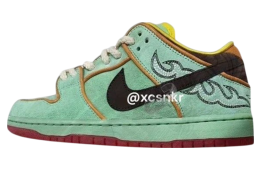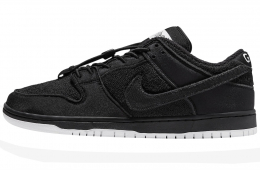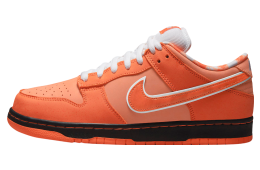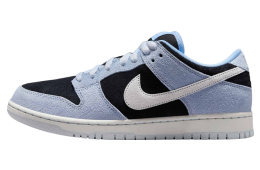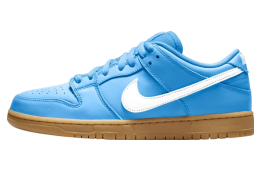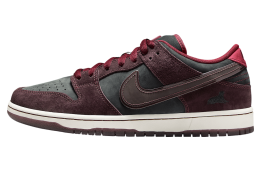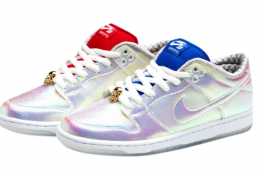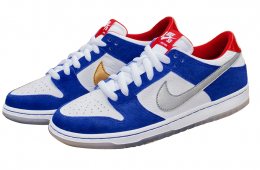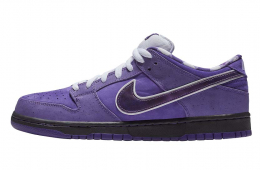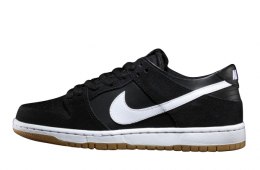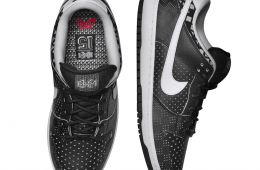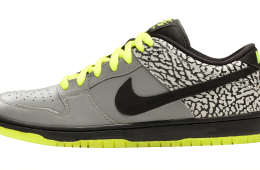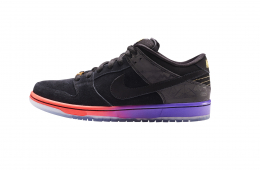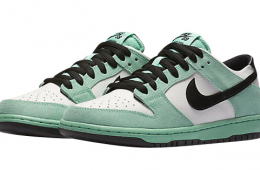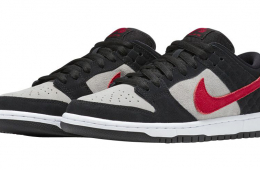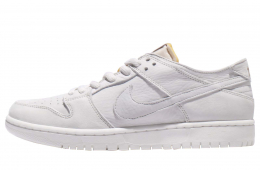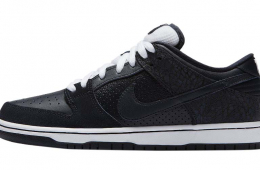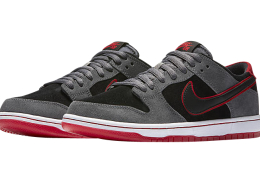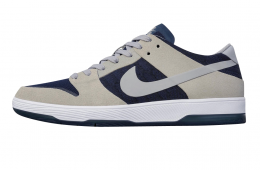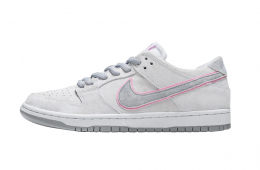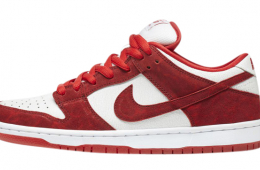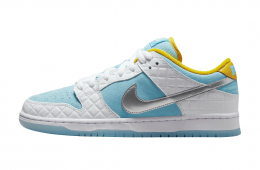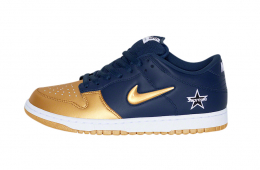Nike Sb Dunk Low
The Nike SB Dunk Low is a prominent sneaker within the skateboarding and streetwear communities, known for its distinctive design, comfort, and versatility. Originally released in 2002 as a part of Nike's skateboarding line, the SB Dunk Low represents a reinvention of the classic Dunk basketball shoes from the 1980s. The shoe has evolved through numerous collaborations with eminent designers, artists, and brands, making it a canvas for creativity and cultural expression. This includes partnerships with names like Supreme, Travis Scott, and Off-White, which have elevated the shoe to iconic status and driven intense demand among collectors and sneaker enthusiasts. The SB Dunk Low combines a chunky silhouette with premium materials, such as suede and leather, and incorporates enhanced cushioning specifically tailored for skateboarding, making it both a functional skate shoe and a fashion statement.
The popularity of the Nike SB Dunk Low extends beyond the skate parks, appealing to a broader audience that appreciates its blend of aesthetics and performance. The shoe's narrative is continually rewritten with each new release, featuring intricate colorways and unique themes that often pay homage to pop culture, music, and art. Limited edition drops often result in long lines and high resale values, highlighting the shoe's cult-like following and its status as a collector's item. With its rich history and continual evolution, the SB Dunk Low has cemented itself as a timeless piece in the sneaker world, bridging the gap between athletic performance and streetwear fashion, and continuing to be relevant across multiple generations and subcultures.
History of Nike Sb Dunk Low
The History of the Nike SB Dunk Low
The Nike SB Dunk Low is one of the most iconic skateboarding shoes ever created, renowned for its blend of style, performance, and cultural resonance. This history traces its evolution from humble beginnings to becoming a global phenomenon.
Origins: The Birth of the Dunk
The story of the Nike SB Dunk Low begins with the Nike Dunk, which made its debut in 1985. Originally designed as a basketball shoe, the Dunk was created by Peter Moore, the same designer responsible for the Air Jordan 1. The Dunk was geared towards college basketball programs and featured two-tone colorways that matched team uniforms. However, its design and performance attributes soon caught the eye of an entirely different audience: skateboarders.
The Skateboarding Scene: A New Frontier
By the late 1990s, skateboarding had evolved from an underground movement to a mainstream culture, but it still lacked specialized footwear that catered to the needs of skaters. Prior to the release of the SB Dunk Low, skateboarders often adopted basketball shoes for their boardfeel and durability. Nike noticed this trend and decided to officially enter the skateboarding market.
The market was initially skeptical; Nike was not synonymous with skateboarding. To infiltrate this subculture, Nike needed not just a shoe, but a rebranding and strategic partnerships. Enter Sandy Bodecker, often credited as the driving force behind Nike Skateboarding (SB). Recognizing the need to gain credibility, Bodecker tapped into the skateboarding community by collaborating with influential skaters and artists.
The Launch: Nike SB Dunk Low Hits the Market
In 2002, the Nike SB (Skateboarding) line was officially launched, and the Dunk Low Pro SB was among the initial models. Unlike its basketball predecessor, the SB Dunk Low was tailored specifically for skating. It featured a padded tongue and collar for extra comfort and protection, a Zoom Air insole for impact absorption, and a more durable build to resist the wear and tear of skateboarding.
Nike enlisted renowned skateboarders like Danny Supa, Gino Iannucci, Richard Mulder, and Reese Forbes to endorse the first series of SB Dunks. The initial offerings included team-inspired colorways that paid homage to various skate shops and skaters, further embedding the shoe into skate culture.
Collaborative Spirit: Art Meets Performance
One of the most significant aspects of the SB Dunk Low's history is its numerous collaborations. These collaborations have led to some of the most sought-after and valuable sneakers in the world. The first major collaboration was with Supreme in 2002. Limited to 500 pairs in two colorways, the Supreme SB Dunk Lows featured a faux-crocodile skin and cement print, borrowing elements from the Air Jordan III. This collaboration was a massive success and set a precedent for future SB Dunk partnerships.
Over the years, Nike SB has collaborated with a myriad of artists, designers, brands, and even skate shops. Some standout collaborations include:
- **Staple Pigeon (2005):** Designed by Jeff Staple, this SB Dunk Low featured a grey, orange, and black color scheme reminiscent of New York City's pigeons. Limited to just 150 pairs, its release caused a near-riot, cementing its legendary status. - **Diamond Supply Co. (Tiffany Dunks) (2005):** Designed by Nick Tershay (Nick Diamond) of Diamond Supply Co., this shoe featured a luxurious "Tiffany" blue and black colorway with metallic silver details, becoming one of the most iconic SB Dunks of all time. - **Paris SB Dunk (2003):** Created in collaboration with French painter Bernard Buffet, each pair showcased unique variations of his art. Limited to 202 pairs, this model remains one of the most coveted in the SB Dunk Low lineup.
Cultural Phenomenon: Beyond Skateboarding
As the SB Dunk Low's popularity soared, its influence seeped beyond the skateboarding world. Sneakerheads, collectors, and fashion enthusiasts began to embrace the SB Dunk for its aesthetic appeal and limited-edition releases. The shoe's unique ability to blend street culture, art, and performance made it a favorite in the burgeoning sneaker resale market.
The SB Dunk’s cultural impact was particularly felt during the mid-2000s sneaker boom. The rise of social media platforms like Instagram further fueled the hype, with images of unreleased and rare Dunks flooding the internet. This period also saw the emergence of sneaker blogs and forums that documented every release, drop date, and story behind the shoes, creating a subculture within a subculture.
The Decline: 2010s Slowdown
By the early 2010s, the SB Dunk Low experienced a decline in popularity. Nike's focus shifted to other models, and the market became saturated with various Dunk releases. Collectors' tastes evolved, and the once-iconic shoe found itself overshadowed by newer, more innovative designs.
However, true aficionados never lost faith. Skateboarders continued to value the performance aspects of the SB Dunk Low, while dedicated collectors kept the spirit alive by hunting down rare releases and older models. This period of relative dormancy allowed the Dunk to regain its roots within the skateboarding community, even as it receded from mainstream attention.
The Resurgence: Return to Glory
Around 2018, a resurgence in interest in the SB Dunk Low began to take shape. Nostalgia played a significant role, as a new generation of sneakerheads discovered the shoe's rich history and cultural significance. Influential figures in fashion and music, such as Travis Scott, Kylie Jenner, and Virgil Abloh, were seen wearing SB Dunks, reigniting the hype.
Nike capitalized on this momentum by re-issuing classic colorways and introducing new collaborations. Limited releases, strategic marketing, and a renewed focus on storytelling helped re-establish the SB Dunk Low as a must-have item. Collaborations with major players like Sean Cliver, Strangelove, and revived partnerships with Supreme once again pushed the shoe to the forefront of sneaker culture.
Technological Innovations: Evolving with the Times
Throughout its history, the SB Dunk Low has undergone various technological enhancements to improve performance and adapt to skaters' needs. The introduction of Zoom Air cushioning, improved grip patterns on the outsole, and durable materials like reinforced suede and leather have all contributed to the shoe's longevity and functionality.
Nike has also experimented with sustainable materials and production methods, reflecting a broader industry shift towards environmental responsibility. Models such as the "Crater" Dunk incorporate recycled materials, aligning with Nike's Move to Zero initiative aimed at reducing waste.
The Collector's Dream: Investment and Rarity
The SB Dunk Low has become one of the most collectible sneakers, with certain models fetching astronomical prices in the resale market. Limited-edition releases, regional exclusives, and pairs produced in collaboration with high-profile artists and brands have made some SB Dunks akin to art pieces.
For example, the "Freddy Krueger" SB Dunk Low, initially created as a Halloween-themed shoe, never saw an official release due to licensing issues but remains one of the rarest and most valuable Dunks. Similarly, the "What The Dunk" (2007), which combined elements from numerous previous SB Dunk releases into one chaotic design, is a testament to the shoe's storied history and creative spirit.
The Future: Continuing Legacy
As of 2023, the Nike SB Dunk Low shows no signs of fading from the cultural zeitgeist. New releases continue to drop, each carrying the weight of expectation and history. The brand remains attuned to both its roots in skateboarding and its status as a fashion icon, ensuring the stylistic and performance elements evolve in tandem.
Future innovations may see further integration of sustainable materials, advanced cushioning technologies, and perhaps even smart features as Nike continues to push the envelope. Collaborations with emerging artists and cultural influencers will likely remain a staple, ensuring the SB Dunk Low continues to resonate with future generations.
Conclusion
The Nike SB Dunk Low's journey from a basketball court staple to a skateboarding icon and cultural phenomenon is a testament to its versatile design, strategic marketing, and deep-rooted community engagement. Over the years, it has transcended its initial purpose, becoming a symbol of artistic collaboration, technological innovation, and enduring style.
In the ever-evolving landscape of sneaker culture, the SB Dunk Low stands as a beacon of authenticity and creativity, bridging the gap between performance and art, past and future. Its legacy is not just a tale of a shoe, but a story of cultural evolution, embodying the spirit of an era and continually redefining what it means to be an icon.
